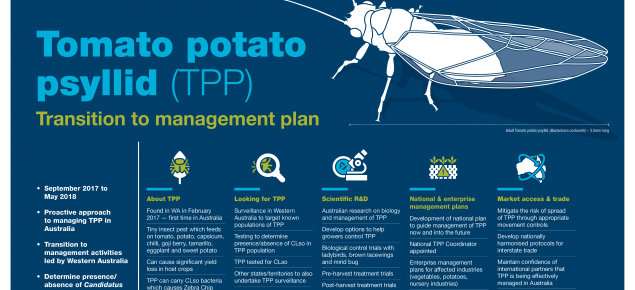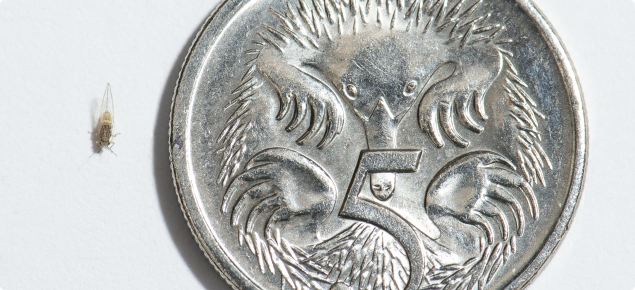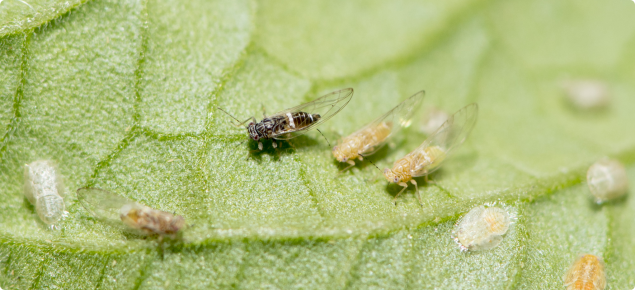TPP was detected in Western Australia in February 2017, prompting a comprehensive biosecurity response. This was the first time TPP had been found on mainland Australia.
The Department of Primary Industries and Regional Development is working with Western Australia's horticulture industry to help minimise the impact of this pest and combat the TPP/CLso complex.
Community support for TPP surveillance program
The Western Australian community has shown great support for the latest round of Tomato potato psyllid (TPP) surveillance, which is now complete. The department thanks community members for their continued support to help protect our valuable horticultural industries.
As part of surveillance activities, the department tested TPP to determine the presence or absence of the damaging plant bacteria known as Candidatus Liberibacter solanacearum (CLso). There have been no detections of CLso in Western Australia to date. Neither the psyllid nor the bacteria pose a risk to human health.
Home gardeners can find out more about how to manage TPP in their garden.
TPP Quarantine Area
A Quarantine Area is in effect for the Perth metropolitan area and surrounds to help minimise the spread of TPP in Western Australia.
Commercial vegetable growers, the nursery industry and home gardeners are reminded of conditions on the movement of host plants.
Transition to management phase comes to an end
Check out this InfoVeg TV episode about the TPP Transition to management plan. InfoVeg TV is produced by AUSVEG.
The Department of Primary Industries and Regional Development has recently completed the TPP Transition to management phase. Transitioning to management followed national agreement by federal and state governments, and the horticulture industry that TPP could not be eradicated, and efforts should focus on managing the pest by implementing a national plan.
The Transition to management plan aimed to improve the capacity of the horticulture sector to manage TPP, and build confidence around the status of the bacterium CLso associated with TPP. There have been no detections of CLso in Western Australia to date.
The plan included the following major activities:
- targeted surveillance for TPP/CLso complex during Spring 2017 and Autumn 2018 in WA
- scientific research to improve understanding of TPP, its biology and options for control. Preliminary results have been compiled in a series of factsheets available from the TPP Industry information webpage
- management of TPP through the development of national and enterprise management plans
- market access and trade.
Other states around Australia have also implemented surveillance for TPP. To date, TPP has not been detected outside of Western Australia.
The department is currently compiling final reporting requirments and results from the Transition to management plan. Outcomes from the Transition to management plan will help inform future TPP/CLso research, development and management strategies.






